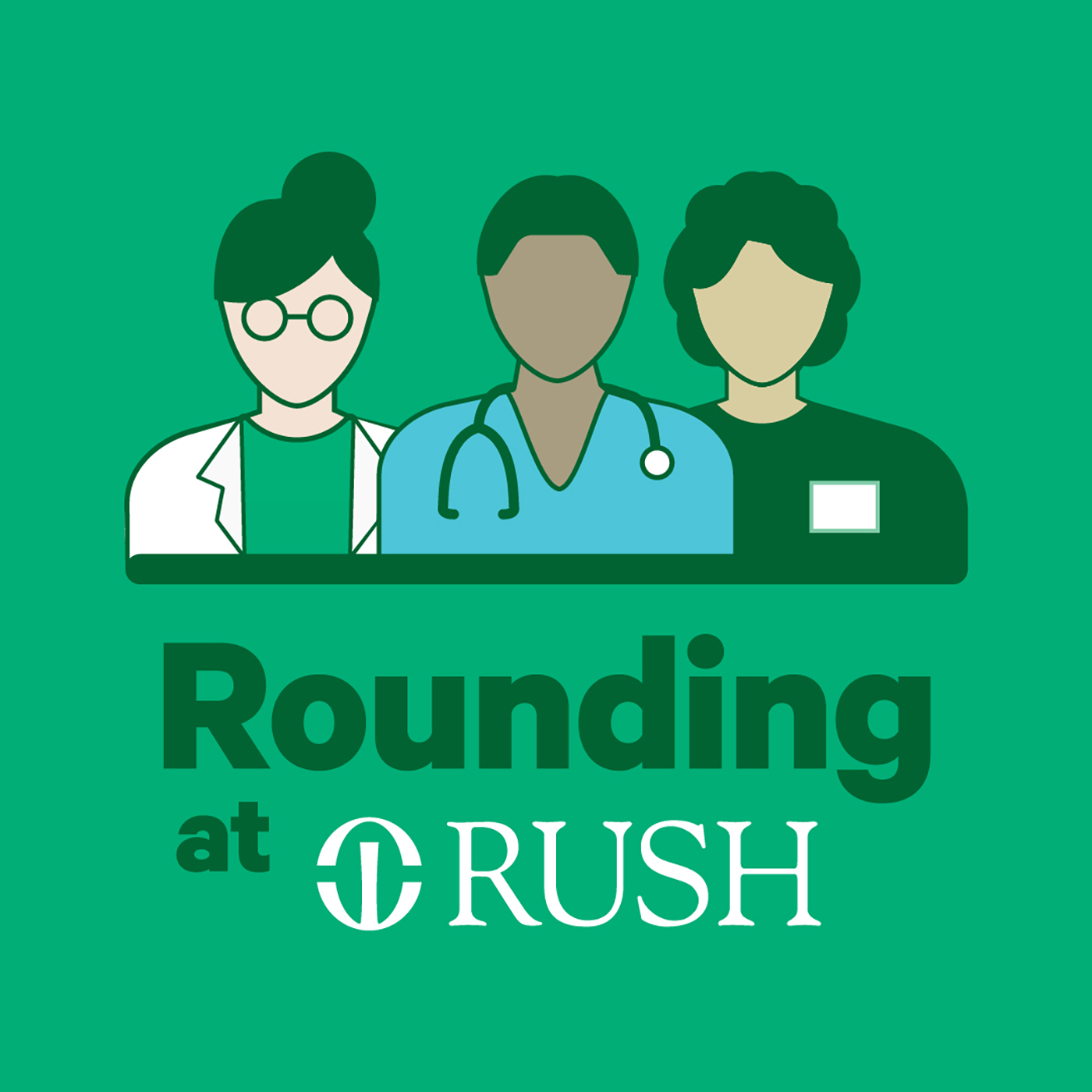
Rounding at Rush spotlights the work of physicians across the Rush University System for Health, comprised of two community hospitals and Rush University Medical Center, which is ranked by U.S. News & World Report as one of the nation’s best hospitals. As a leading health system, Rush delivers outstanding patient care, offers the latest treatments, educates the next generation of health care providers, and pursues groundbreaking research. Accreditation Statement In support of improving patient care, Rush University Medical Center is jointly accredited by the Accreditation Council for Continuing Medical Education (ACCME), the Accreditation Council for Pharmacy Education (ACPE), and the American Nurses Credentialing Center (ANCC), to provide continuing education for the health care team. This activity is being presented without bias and with/without commercial support. Designation Statement Rush University Medical Center designates this internet enduring material activity for a maximum of One (1) AMA PRA Category 1 Credit(s)™. Physicians should claim only credit commensurate with the extent of their participation in the activity. Disclosures The course director(s), planner(s), faculty and reviewer(s) of this activity have no relevant financial relationships to disclose.
Episodes

Thursday Aug 29, 2024
Thursday Aug 29, 2024
The older adult population is the largest-growing cohort of epilepsy patients in the United States. One in four newly diagnosed patients is 65 and older, and that number is set to double by 2055. With the signs of epilepsy presenting in more subtle ways than in younger patients, older adults tend to be late- and mis-diagnosed.
In addition, the geriatric population is often excluded from clinical trials because of age. Thus, this group is underrepresented and its clinical impressions from epilepsy are not well understood.
Rebecca O’Dwyer, MD, is a neurologist and epileptologist in the Rush Epilepsy Center and is the Director of the Epilepsy Clinic for Older Adults at Rush. Her clinical expertise is in epilepsy and cognition, as well as epilepsy and seizures in the older adult population.
“A lot of us in the epilepsy, neurology and lay community associate epilepsy with being a disease of the youth. But we see this bimodal distribution of cases in younger patients as well as older ones. For older adults, epilepsy can present as a symptom of an underlying disorder.”
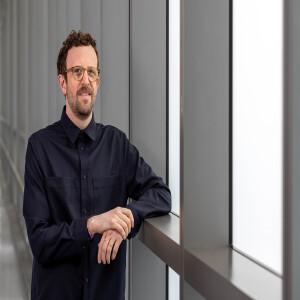
Wednesday Jun 19, 2024
Cardiovascular Disease Prevention at Rush with Danny Luger, MD
Wednesday Jun 19, 2024
Wednesday Jun 19, 2024
Danny Luger, MD, is a cardiologist in the Rush University System for Health and the co-founder of the Rush Metabolic Health Consortium.
He runs the Rush Center for Prevention of Cardiovascular Disease at Rush Oak Park whose goal is to prevent patients from developing cardiac disease. When meeting with patients, Dr. Luger helps them identify their barrier to achieving a healthy lifestyle, whether it is sedentary behavior, multiple risk factors for cardiovascular disease, high blood pressure, high cholesterol, or diabetes. After getting to know his patients, he creates individualized medical plans to help them overcome those factors.
“The model that we're trying to put forth is preventive, where we can engage people in health and wellness well before they develop manifestations of disease. Eighty percent of cardiovascular disease is preventable, so we know this is an effective strategy. It's a matter of changing the way that our system approaches chronic diseases and the way that patients conceptualize seeing a doctor.”

Wednesday May 29, 2024
Wednesday May 29, 2024
With expertise in neurosurgery, neuro-oncology, radiation oncology and palliative care, clinicians in the Rush Spine Tumor Clinic are able to provide patients with comprehensive, tailored treatment plans when they have benign or malignant spinal tumors. Depending on the location and size of the tumor, as well as the patient’s age and overall health, the treatments that Rush provides can help patients regain a better quality of life by lessening their symptoms, such as mobility and memory challenges, pain, speech difficulties and seizures.
John O’Toole, MD, MS, is a neurosurgeon and the co-director of neurosciences service line at Rush, as well as the co-director of the Coleman Foundation Comprehensive Spine Tumor Clinic.
Ken Tatebe, MD, is the clinical director of stereotactic radiosurgery, the neuro-oncology research director and is a radiation oncologist at Rush.
“It can be a struggle for patients to obtain the best care at multiple different institutions, especially when their care providers may not all be on the same page for treatment. We strongly feel that providing this kind of interdisciplinary care under one roof really results in the most optimal treatment plans for patients,” explains Dr. O’Toole.
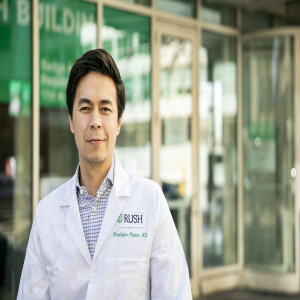
Wednesday Apr 17, 2024
Wednesday Apr 17, 2024
Endoscopic sleeve gastroplasty (ESG) is a novel, outpatient endoscopic approach to treat obesity. Without using permanent anatomical alterations, clinicians who incorporate ESG into their care suture the inside of the stomach as a way of reducing the stomach’s volume down to the size of a banana, allowing patients to get full faster. In the continuum of weight loss therapies, including medication and surgery, ESG is a viable approach for patients looking for a minimally invasive approach to achieve their weight loss goals.
Christopher Chapman, MD, is a gastroenterologist at RUSH University Medical Center whose expertise is in interventional and bariatric endoscopy, with a focus on providing patients minimally invasive approaches in their care.
“Surgery is a very effective therapy, but is more invasive. Pharmacotherapy, at least before the introduction of GLP-1s, was minimally invasive, but also wasn't as effective [as surgery]. Endoscopy [such as ESG] is in the middle of being a little bit more invasive, but also more effective than medications.”

Thursday Mar 28, 2024
Thursday Mar 28, 2024
In this episode, Salina Lee, MD, a gastroenterologist at RUSH University Medical Center, will discuss how the detection and removal of adenomas is key to helping gastroenterologists prevent patients from developing colorectal cancer. Additionally, she will profile several colorectal cancer screening tools, as well as the latest advancements in colonoscopy, including the use of GI Genius that helps to produce higher adenoma detection rates.
“GI Genius is a novel artificial intelligence that's built into our processor to help us identify potential adenomas. You may wonder if GI Genius is helpful even amongst gastroenterologists who already have an adequate, or even good, adenoma detection rate. There’s research that shows it does increase the detection of polyps when compared to humans alone, even if they were considered experienced.”
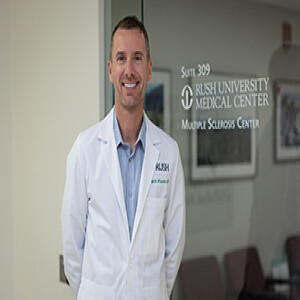
Thursday Jan 25, 2024
Thursday Jan 25, 2024
The RUSH Multiple Sclerosis Center features a team of world-class clinicians and researchers, dedicated to offering the most advanced, comprehensive and individualized treatment protocols to patients affected by multiple sclerosis (MS), neuromyelitis optica (NMO), spectrum disorders (NMOSD) and other autoimmune disorders affecting the central nervous system.
In this episode, Augusto Miravalle, MD, the Chief of the Section of Multiple Sclerosis at RUSH, discusses the importance of whole brain health for MS patients, his work to reach and treat underserved populations, and the vital role patient education plays for beneficial short and long-term outcomes.
“One of my priorities is to improve healthcare literacy [about MS]. It's been demonstrated that patients who have a high level of literacy do better [in their care]. They have better clinical outcomes and they have a better understanding of the importance of certain types of lifestyle interventions.”
CME Link: https://cmetracker.net/RUSH/Publisher?page=pubOpenSub#/event/492484/
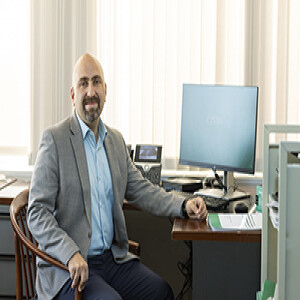
Friday Dec 29, 2023
Catheter-based Interventions for Treating Structural Heart Diseases at RUSH
Friday Dec 29, 2023
Friday Dec 29, 2023
Catheter-based approaches to treat congenital and structural heart diseases are providing patients with a minimally invasive option for care when they are not eligible for traditional surgery. Hussam Suradi, MD, an interventional cardiologist at RUSH who specializes in treating patients with complex coronary and peripheral artery disease, will talk about several of these interventional approaches, including TAVR, or transcatheter aortic valve replacement, and TEER, or transcatheter edge-to-edge repair to their patients.
The podcast will also profile several promising new clinical trials that are evaluating the use of the next generation of catheter-based intervention in TAVR, TEER and TTVR, or transcatheter tricuspid valve replacement.
Dr. Suradi is fellowship-trained in structural heart interventions and is skilled in treating patients with heart valve conditions, such as tight or leaky valves, and those who are born with heart defects. He is also the director of the Cardiac Catheterization Lab and the Structural Hybrid Lab.
“At RUSH, we specialize in the treatment of a variety of different structural heart conditions using cutting-edge transcatheter approaches. We’re also excited to take part in several trials that are helping to move patient care forward.”
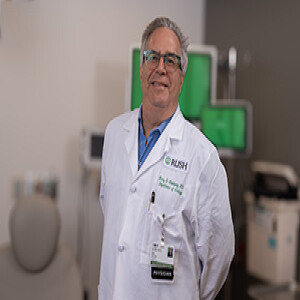
Monday Nov 13, 2023
Monday Nov 13, 2023
Bladder cancer is a condition that primarily affects elderly patients, causing symptoms such as blood in urine, changes in urinary habits and pain during urination. It’s the fourth most common cancer among men and the eighth most common cancer among women in the United States. In this episode, Gary Steinberg, MD, discusses the challenges in managing bladder cancer, which can range from low-grade and non-invasive to high-grade and invasive. He also highlights the importance of providing patients with an early diagnosis and profiles the range of treatments available for patients today.
Dr. Steinberg is a urologist at RUSH and a national authority in the surgical treatment of bladder cancer and continent urinary tract reconstruction. He is a recognized expert in translational bladder cancer research and has made significant contributions to the understanding of both non-muscle invasive and invasive bladder cancer.
“Treatment for patients with intermediate risk, non-muscle invasive bladder cancer is an unmet need. Most patients with intermediate risk bladder cancer have a low risk of progression, but their risk of recurrence is quite high. Our standard form of treatment, chemotherapeutic agents, is inadequate, but we're changing the way we deliver them. We think these new ways could improve the delivery of the drugs to the bladder lining cells.”
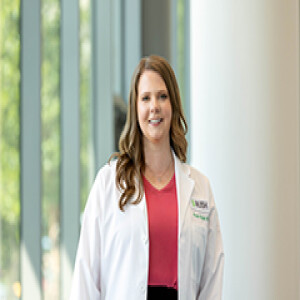
Thursday Sep 28, 2023
Thursday Sep 28, 2023
Clinicians in the RUSH Cancer Center are continually providing tailored cancer treatment to their patients. In today’s episode with Jessica Slostad, MD, a breast oncologist in the RUSH University System for Health, she profiles one possible, future avenue for personalized medicine--organoid drug screening. Although they are still being evaluated, tumor organoid drug screening may play a key role in the evolution of personalized cancer care. This type of screening could help clinicians test the effectiveness and side effects of therapies prior to giving them to patients.
Later in the episode, she profiles the ways she treats women with pregnancy-associated breast cancer, along with the unique challenges mothers and their babies encounter during treatment.
Dr. Slostad is an assistant professor of Medicine in the Division of Hematology, Oncology and Cellular Therapy at RUSH and specializes in breast cancer management. Her research interests include clinical and translational research with a focus on precision oncology and organoid technology.
“As we get more data and if [that data] supports the hypothesis that tumor organoids can be used as a drug screen to predict response, we would eventually look to see if we can use the tumor organoid to pick which therapy for the patient. Our data is not there yet; we first need to establish that there is concordance between the drug screen and what the patient is getting.”
CME Link: https://cmetracker.net/RUSH/Publisher?page=pubOpenSub#/event/490159/

Friday Sep 08, 2023
Friday Sep 08, 2023
Genetic testing plays a crucial role in the diagnosis and management of neuromuscular illnesses. Testing can help provide a definitive diagnosis in cases where clinical symptoms alone may not be conclusive. Neuromuscular disorders often share overlapping symptoms, making it difficult to distinguish between them based solely on clinical presentation.
Rabia Malik, MD, is a neuromuscular physician in the Department of Neurology at RUSH University Medical Center and is the director of the RUSH Muscular Dystrophy Association Care Center Clinic. Rich Dineen, MS, CGC, is a certified genetic counselor in the section of Neuromuscular Diseases at RUSH.
Dr. Malik explains that “having the right clinical question is definitely the most challenging piece of neuromuscular illness [care]. You need expertise and experience in recognizing what particular neuromuscular disorder you may be dealing with because that would subsequently help with [choosing the right] genetic testing.”
CME Link: https://cmetracker.net/RUSH/Publisher?page=pubOpenSub#/event/489637/
